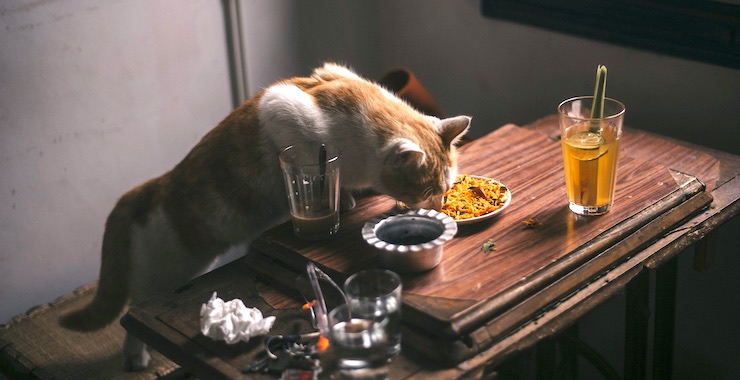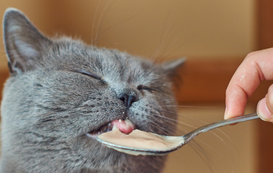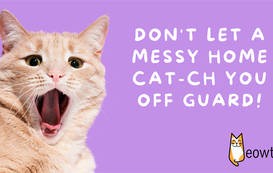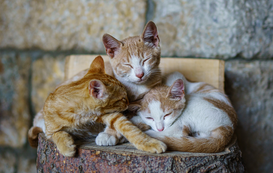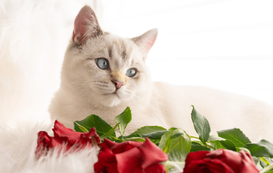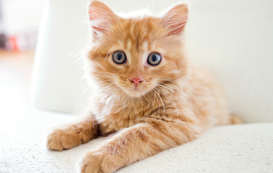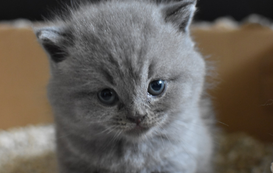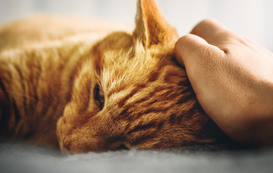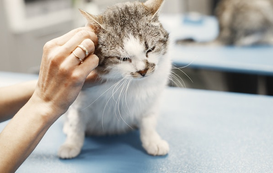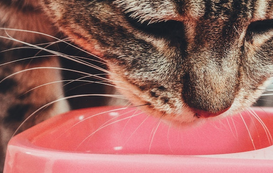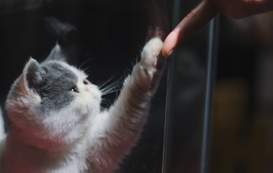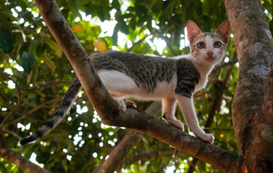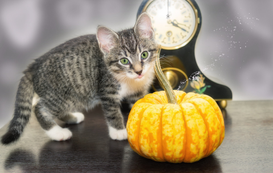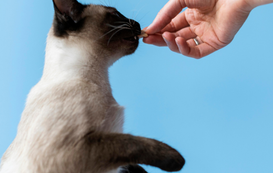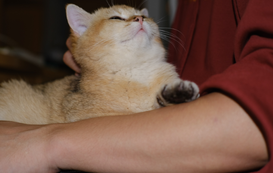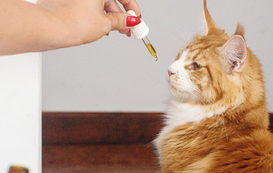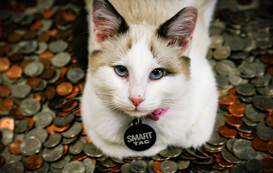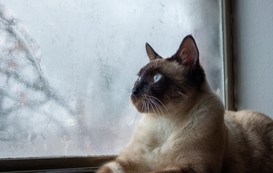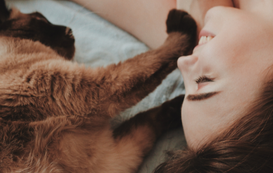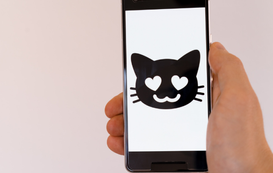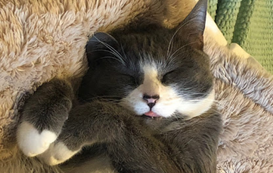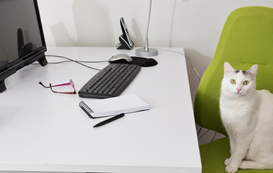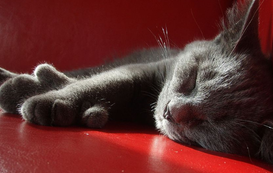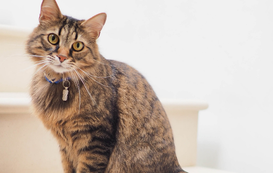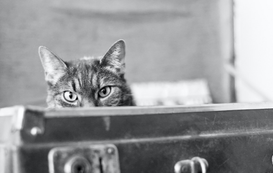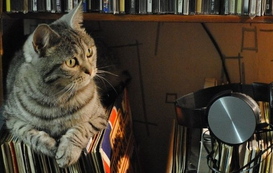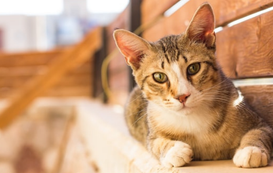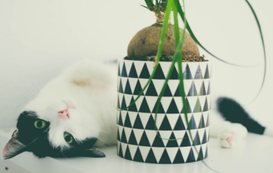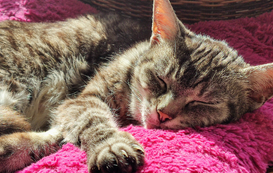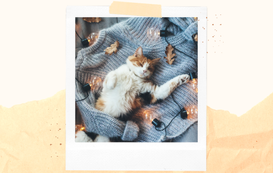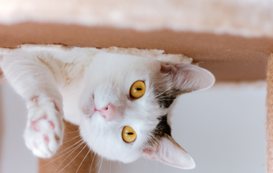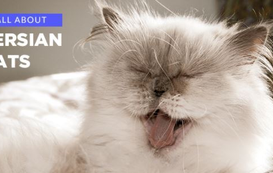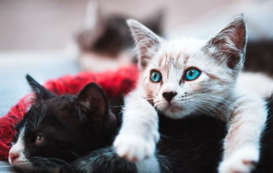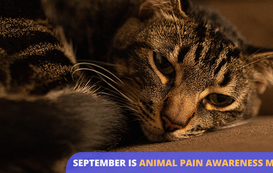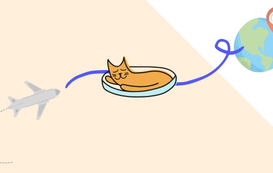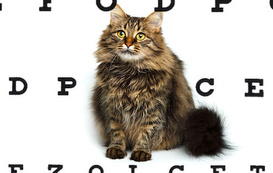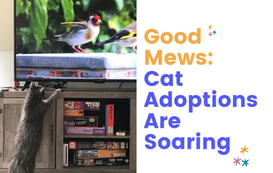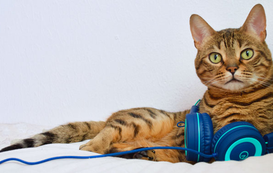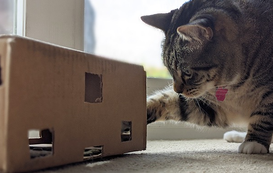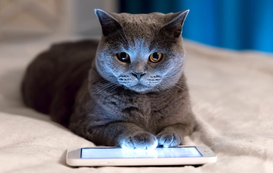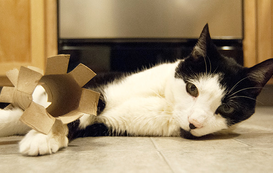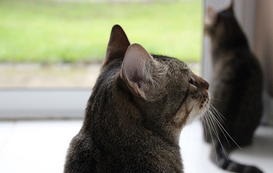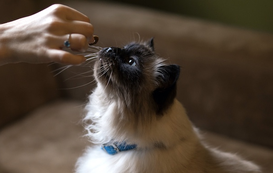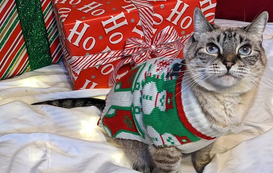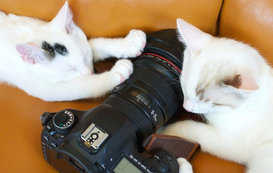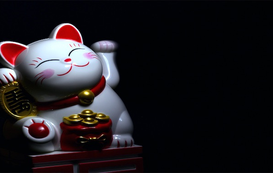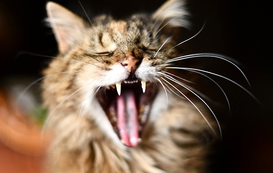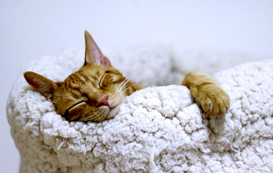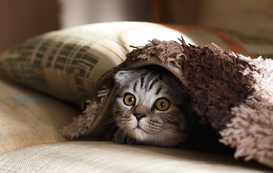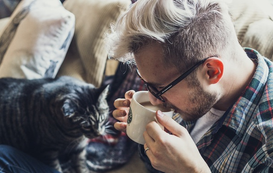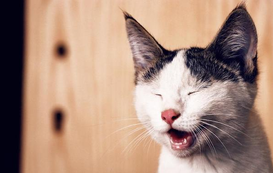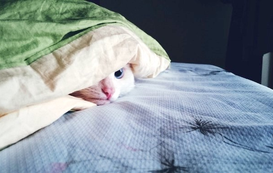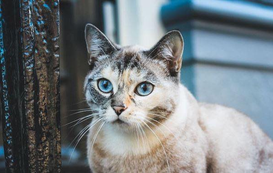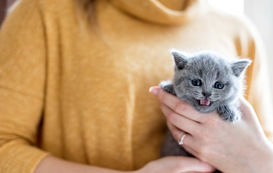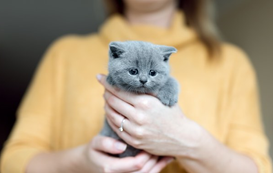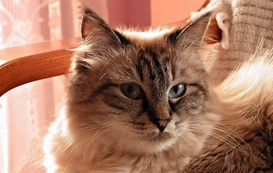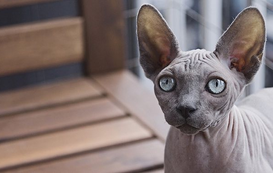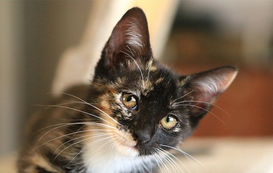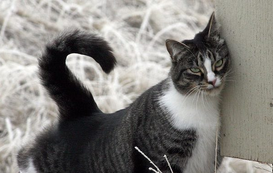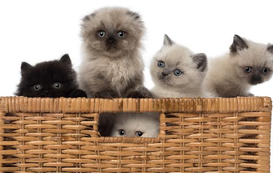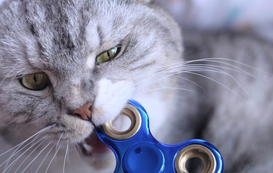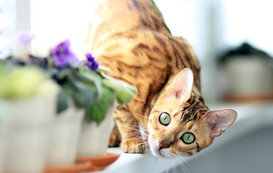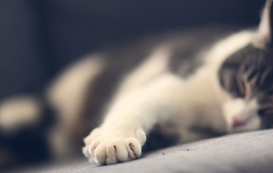I'm not sure about your cat(s), but my cat Maxwell Wellington LOVES people food. When he was a chunkier, younger, healthier boy, he used to steal pita chips off my plate. He would stick his head into hummus faster than I could blink. He would climb over me to get to yogurt. To this day, he comes running into the kitchen when he hears a bag of cheese open. How he knows the sound of a bag of cheese over any other bag opening is beyond me. However, as cute as it is to see Maxwell, Fluffy, or Peanut try to steal your waffles, it could be hazardous to their health. Veterinary Nutritionist Dr. Cailin Heinze, VMD, MS, DACVN, an assistant professor of nutrition at Tufts Cummings School of Veterinary Medicine states, "We generally recommend that cats be fed no more than 20 to 30 calories a day from unbalanced sources, such as human food items or commercial treats." For more on what goes into your kitty's bowl, check out our guide on cat food ingredients to avoid.
Dairy
Despite the old wives tales, Disney stories, and cartoons, dairy is not good for your cat(s). After weaning as kittens, the amount of lactase (the enzyme needed to digest lactose) produced declines causing many cats to become lactose intolerant. Perhaps a touch of melted ice cream is ok for Fluffy, but there's a chance that it isn't. Be sure to check with your vet as lactose intolerance causes belly aches, bubble guts, gas, diarrhea, and/or vomiting.
Onions and Garlic
According to veterinarian Dr. Jason Nicholas, BVetMed, "Cats should not eat onions, garlic, shallots, chives, or other foods that contain thiosulphate, a compound that can cause serious problems. When enough is eaten, the thiosulphate causes destruction of their red blood cells, a devastating condition called hemolytic anemia."2 While I'm sure Fluffy and Peanut don't necessarily set out to eat an onion slice or a clove of garlic, it could be hiding in the marinade of your chicken breast or in the turkey broth you're eating. If you give your cat(s) broth to entice them to eat or when they aren't feeling well, consider buying a broth made for pets rather than humans.
Alcohol
I hate that I even have to include this but you know there are some frat guys out there that think giving Peanut some beer is cool. Newsflash: it is not cool. It can also be deadly. As little as two teaspoons can cause a coma and/or death. Consumption of alcohol can cause vomiting, diarrhea, labored breathing, tremors, coma, and death. Additionally, it can cause brain and liver damage.
Caffeine
While we humans often require caffeine just to get out of bed in the morning, Fluffy doesn't. Coffee, tea, energy drinks, soda, or anything with caffeine is a definite no-no for Fluffy. Caffeine consumption can lead to restlessness, difficulty breathing, abnormal heart rhythm, tremors, seizures, or death.
Chocolate
While it's a well-known fact that chocolate is lethal to dogs, but it's less well-known that it's also toxic to cats. According to the article Human Foods that are Dangerous for Cats, "The compound in chocolate that is of major concern is theobromine. It is in all forms of chocolate, and most concentrated in dark chocolate and unsweetened baking chocolate."3 Eating chocolate could cause Peanut to have vomiting, diarrhea, an abnormal heart rhythm, tremors, or seizures. And remember, chocolate contains caffeine so this one is a double whammy.
Raw Dough
This sounds mildly crazy, but it's true. Even the slightest bit of uncooked dough can cause serious health issues for Fluffy. Not only does it produce alcohol (which we know is a no-no), but it also releases carbon dioxide. What does that do? It causes the dough to rise which makes Fluffy's belly expand. It may expand enough to rupture the stomach lining and/or the intestines. If you suspect your cat has ingested raw dough, get them to a vet immediately. They may require surgery.
Xylitol
What the heck is xylitol? It's a sugar-free sweetener that's used in many foods and other every-day items such as gum, candy, baked goods, and toothpaste. Being aware of these hidden dangers is key to poison prevention. Alternative Medicine Therapist Denyse Lessard states, "If your cat ingests xylitol, it can lead to liver failure. Xylitol will increase your cat's insulin levels which will lower his sugar levels. The first signs of xylitol intoxication are vomiting, loss of coordination and lethargy." 4Xylitol poisoning can lead to seizures and possible liver failure. "Elevated liver enzymes and liver failure can be seen within a few days."5
Raw Eggs
Raw eggs may be a good idea for your body-building cousin Carl, but it's definitely not a good idea for Fluffy and Peanut. Not only do raw eggs run the risk of containing salmonella, raw eggs contain an enzyme called avidin. Avidin is a protein that when eaten raw, decreases and sometimes even blocks the absorption of biotin, a B vitamin. 6 This can lead to coat and skin problems. Be sure to note that once eggs are cooked, avidin is destroyed so feeding cooked eggs to your cat isn't toxic. Just don't start feeding Peanut an egg-only diet.
Bones
While your neighbor's dog Fido loves his bones, Fluffy doesn't need to be like Fido. Bones that are appropriately sized for Fluffy are usually those of chicken, turkey, or small animals. Those bones are brittle and will likely splinter while Fluffy is going to town. Splintered bones can cause serious damage to the mouth, throat, and digestive tract, and often need to be removed surgically.
Grapes, Raisins, Currants
Some people may refer to grapes or raisins as nature's candy. I am not one of those people and it's pretty safe to say that Peanut will also disagree. While the toxic element in these foods has yet to be pinpointed, it is said that consumption of grapes, raisins, and/or currants can lead to kidney failure.
cat sitters on Meowtel understand how important it is to only feed cats what the cat parents have instructed. You can help your sitter achieve snack time success by making sure all human foods are safely secured out of Fluffy's reach before you leave for vacay. Book your cat sitter and travel with peace of mind this holiday season!
Nicholas, Dr. Jason "Dr. J". (2017) 14 Human Foods You Shouldn't Give to Your Cat. Retrieved from https://www.preventivevet.com/cats/human-foods-you-should-not-give-to-your-cat
(1999-2019). Human Foods that are Dangerous for Cats. Retrieved from https://www.petmd.com/cat/emergency/poisoning-toxicity/e_ct_human_food_poisoning
Lessard, Denyse. 10 Most Toxic Foods for Cats. Retrieved from https://www.zumalka.com/blogs/blog-pet-health/toxic-foods-for-cats
People Foods to Avoid Feeding Your Pets. Retrieved from https://www.aspca.org/pet-care/animal-poison-control/people-foods-avoid-feeding-your-pets
Turner, Josie, F. (2018). Can Cats Eat Raw Eggs? - Harmful Food for Cats. Retrieved from https://www.animalwised.com/can-cats-eat-raw-eggs-harmful-food-for-cats-2917.html
Photo by Sheep via Pexels
Ready to keep your kitty safe and sound? Find a cat sitter on Meowtel today!

